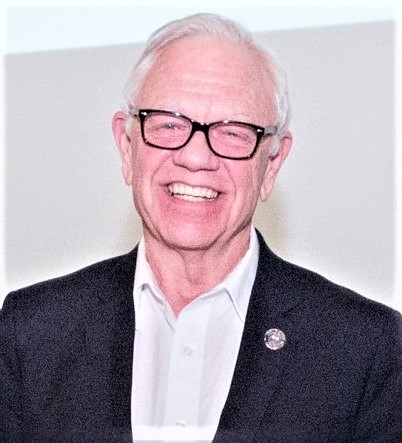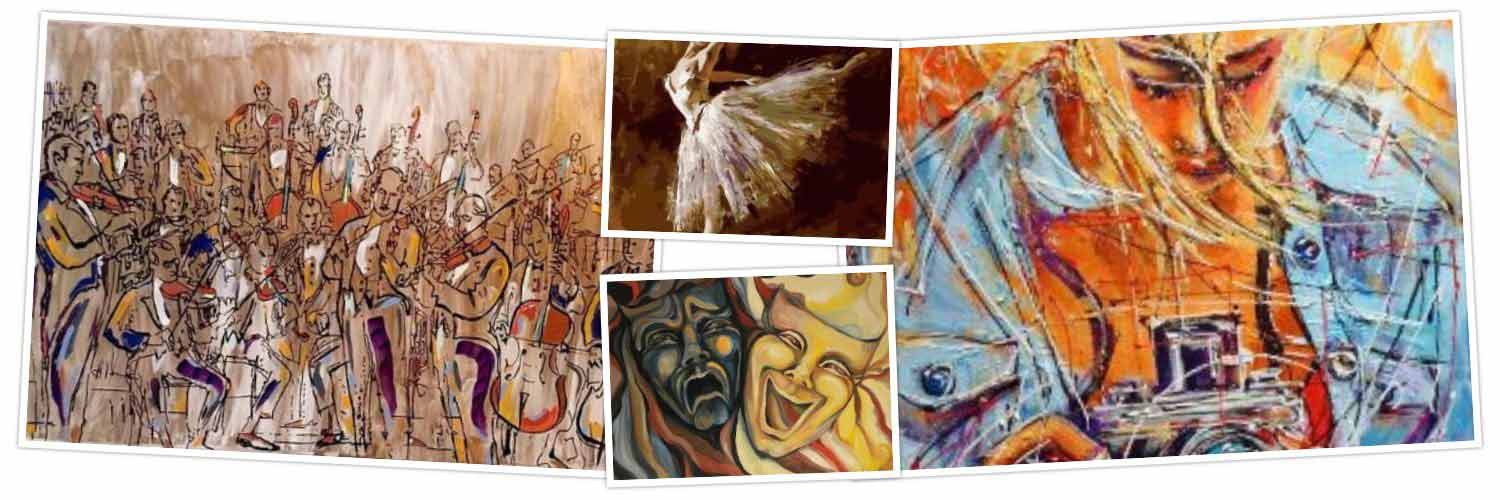John Toohey, President and Executive Director of ARTS San Antonio
By JASMINA WELLINGHOFF, Editor –
ARTS SA’s 2019-20 Season is varied and interesting. How
do you choose what you’ll be presenting?
We have an ongoing conversation with the staff and the board and our subscribers
about the selection of artists to present, and that conversation is in the
context of us not wanting to replicate what others in the city are doing. We
are not different just for the sake of being different. We seek different types
of performers who can offer excellence of experience to the community. And we
seek artistic diversity. We are completely comfortable engaging artists from
China or Japan, or Africa, and all regions of the world. These are usually artists
and ensembles who are on a tour of the U.S., so we work with their American
tour management.
I make the final decisions. And it’s my responsibility to deal with the many variables that are involved in these engagements.

What kind of shows draw the largest crowds?
Our largest audience is for “The Nutcracker”; 8-10 thousand people attend
“The Nutcracker” performances every year. Yo-Yo Ma’s concert in April was sold
out and it sold out rather quickly. The Spanish Harlem Orchestra is popular
here; we presented them four times. Big spectacles draw a lot of people but
they are also more expensive to produce.
Which shows in the upcoming season are you personally
looking forward to?
I am looking forward to hearing the Kingdom Choir from London, and also, Twelfth
Night to be performed by actors of the London stage. We are working with
the English Department at UTSA on that.
Another performance I am excited about is Farruquito’s; it will be a big flashy
flamenco production. His reputation is huge.
How did you get into arts management?
I think it was an emotional decision more than a logical one. My mother
wanted me to be an electrical engineer. But I have always loved the magical
interface between performers and the audience. It’s unique. Arts administrators
make that possible. From the days that I would set-up music stands and chairs
for orchestras to planning what we plan now, I’ve always enjoyed that process.
What is the most challenging part of your job?
Generating the revenue necessary to carry out this work. For the most part
we present artists who are not familiar to San Antonians. We have to work hard
to get the audience to trust us and to get excited about new experiences. Not
everything we do is new but it is often new to San Antonio. Why would a
thousand people come to see Japanese drummers? When you see it, it’s thrilling
but how do you convince people to come and experience them?
Do you attend plays, concerts or dance shows produced by
San Antonio companies?
We (he and his wife) love theater so we go regularly to the Classic Theater
for plays and the Public Theater to see the musicals.
You have lived in San Antonio a long time now. If you
were the city mayor, what would be your top priority?
I think transportation is difficult here. Having been in Tampa recently and
also in Houston, I saw that mass transportation is a much larger part of
everyone’s life there. And in cities like Boston, you can take the subway
everywhere, inexpensively. That makes the city more livable for more people and
the city is cleaner as a result of that. The other issue is homelessness. Even
though it’s pretty well managed here, I see it increasing, and I am concerned
about that.
If you could visit any place in the world, where would
you like to go?
Africa. But we have a particular affection for the United Kingdom,
especially Wales. Wales is beautiful, the climate is moderate and the people
are very warm, no ostentation. Everything is modest.
What are your happiest memories from childhood?
There’s a moment that I think about a lot. I was probably ten years old – I
open the front door (We grew up in Southern Illinois), the air is beautiful,
you are a kid and you don’t have any worries and you can just go out into the
world to see and discover. I also remember arriving at summer camp, when I was
12, about enjoying summer camp and thinking that my whole life is ahead of me.
Did you think you would become an engineer?
Yes, I was always interested in science. Nikola Tesla was one of my
childhood heroes. In junior high I won the science fair for building a Tesla
coil. But I never acquired the joy of mathematics, and mathematics was required
to do science. I was also into music from a young age. The first record I ever
owned was (William) Steinberg conducting the Cleveland Orchestra in Wagner’s
overtures. I still remember listening to that. As a child I played clarinet.
Then in high school I was in band. So, when time for college came, I thought I
would either focus on music or languages. At that time, it was much easier to
get a scholarship in music than in languages, so I said, fine. I played the
bassoon and pursued a degree in performance. (He later studied with Sherman
Walt at Boston University and, following graduation, played bassoon in the
Coast Guard band for four years. After leaving the military he got a job
managing an orchestra in New London, Conn., launching his career in arts
management.)
You have been married to Judi for over 40 years? As you
indicated, that’s a rarity in the performing arts world. How did you two make
it work?
First off: Don’t get divorced! What helped is that we never wanted to be
divorced from each other at the same time, so while one person was angry the
other tried to resolve the problem. I don’t want to say that is has always been
fun. Any two humans must constantly compromise, negotiate and use diplomacy.
Any team requires that. We found ways to make things work.
What moral values
do you think are the most important in both professional and personal life?
Loyalty, taking responsibility for one’s actions and the outcomes of those
actions, and fairness. One of my duties here is to manage the environment in
which people work. Do they have the tools they need? Are the expectations
appropriate? Are they compensated fairly? For 20 years I was the general
manager of the symphony in Fort Worth which entails a lot of different
responsibilities. But as long as you seek to be fair, you’ll end up going in
the right direction.
Another issue is equity vs. equality. I learned a lot about it from the city employees I have associated with. Giving each person a dollar would be equality, but someone may need more than someone else. We face this issue in what we do. We bring top performers, like Yoyo Ma, and it’s often very expensive to bring them here. So, if I said, every ticket is $100, that would be equality (but would exclude a lot of people). There are people in the community who do not have the resources to pay $100 but deserve access. We made it possible for 400 kids and military family members from the community to attend Ma’s concert for free.
In your career you have worked with some very
accomplished artists, a few geniuses perhaps. What insights can you share about
these exceptional individuals?
To the degree that the brain of such an individual is engaged in creative
work, chances are that there would a deficit in other areas of personality and
character. It may not be always the rule but it’s not surprising that Einstein
was a great genius in physics but other parts of his personality were not so great.
Nikola Tesla was a towering genius but he was terrible at finances and died a
pauper. This is also true in the arts, with choreographers, composers and
others. I had the opportunity to work with Nicola Roscigno, the music director
and co-founder of the Dallas Opera. He didn’t need the score; he didn’t need
any papers. He knew exactly where the soprano was supposed to be standing at
any point and where each singer should join in, etc. The rest of his life was
very carefully controlled and limited, so that he could dedicate himself to his
artistic work. When I worked with him, I was the director of marketing and he
thought that my work was like selling sausages. He didn’t understand the value
of marketing.
I’ve had the opportunity to work twice with Yo-Yo Ma. I
believe that his “genius,” if you will, what makes him special, is the sum of
his musical ability, his warm and giving personality and his genuine desire to
actively use creativity – all forms of art – to bring people together. When we engaged him to perform in San Antonio
this past April, the conditions were that there would be a day of music and a
“Day of Action.” He wanted this Day of
Action to be spent on the border between Laredo and Nuevo Laredo. I’m glad that we and our supporters here were
able to make that possible. This
performance and day of action in Texas was part of Yo-Yo’s “Bach Project.” During the concert, he performed the complete
sequence of Bach’s Suites for Solo Cello, more than two hours of music, unaccompanied,
from memory. It was fun to help arrange
the “surprise” encore for the concert with Yo-Yo and our Flaco Jimenez, “Las
Golondrinas.”
